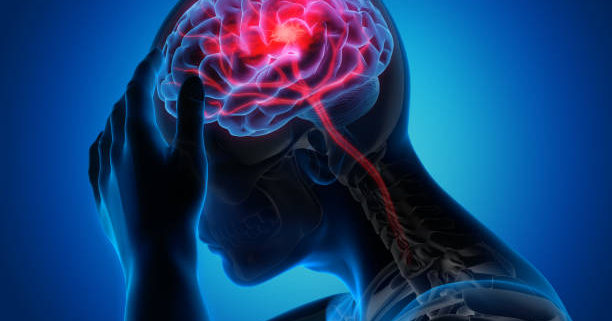Our brain is an incredible organ, controlling everything we do, both consciously and unconsciously. It’s made up of billions of nerve cells that help us move, speak, learn, remember, and even regulate our moods. But when something goes wrong in this complex system, it can lead to serious health problems.
These problems can affect our daily lives, like moving, talking, swallowing, breathing, learning, memory, and mood. Some warning signs, like difficulty breathing or sudden severe headaches, might indicate a life-threatening condition.
There are many different neurological disorders out there, ranging from Huntington’s disease to migraines to epilepsy. Others, like brain tumors or meningitis, can also be quite serious. Conditions such as multiple sclerosis or Guillain-Barre syndrome can profoundly impact a person’s neurological health as well.
It’s important not to ignore any unusual symptoms or changes in how your body works, as catching these issues early can make a big difference in treatment and outcome.
Neurological Disorder Symptoms Simplified
For those who aren’t familiar with signs of neurological disorders, it’s important to understand these five key symptoms:
Pain: Pain, like backaches or headaches, is common with neurological issues. Chronic pain, especially, might indicate a problem with the nervous system.
Memory Problems: Trouble concentrating and remembering things could signal a progressive neurological disease. You might have difficulty processing information or recalling recent events.
Numbness: Losing feeling in parts of your body, whether it’s a tingling sensation or complete numbness, can indicate a neurological issue. This can affect your balance, coordination, and daily activities.
Sleep Troubles: Insomnia (difficulty sleeping) or hypersomnia (excessive sleepiness) are frequent sleep-related challenges associated with neurological issues. They can also cause anxiety, which is another symptom to watch out for.
Vision Changes: Damage to the part of the brain controlling vision can lead to vision loss or problems like blurry vision or sensitivity to light. This can make it hard to see and understand your surroundings.
If you notice any of these symptoms, it’s crucial to seek medical advice to prevent further complications.
Understanding Common Neurological Disorders
Neurological disorders come in different forms, ranging from mild issues to severe conditions needing immediate medical attention. Below is an overview of several common neurological disorders:
Headaches: These can vary from mild discomfort to severe pain. The main types are:
- Tension-Type Headaches: Caused by stress or muscle strain, they feel like a tight band around the head.
- Migraines: Intense throbbing pain, often on one side of the head, with sensitivity to light and sound.
- Cluster Headaches: Sharp, intense pain that comes and goes in cycles.
Treatment varies, from over-the-counter painkillers to prescription medications, depending on the severity.
Stroke: This occurs when there is a disruption in the blood flow to the brain. There are two main types:
- Ischemic Strokes: Blockage of a blood vessel, treated with clot-dissolving meds or clot removal procedures.
- Hemorrhagic Strokes: Bleeding in the brain, may require surgery to stop bleeding and relieve pressure.
Rehabilitation after a stroke is crucial for recovery.
Epilepsy and Seizures: Epilepsy causes unpredictable and recurring seizures. Treatment usually involves medication, but for some, alternative options like nerve stimulation might be necessary.
- Generalized Seizures: Affect the whole brain, leading to loss of consciousness and uncontrolled movements.
- Focal Seizures: Start in a specific part of the brain, causing altered consciousness or unusual sensations.
For severe cases, surgery or specialized therapies may be options.
Alzheimer’s Disease and Dementia: Alzheimer’s is a progressive neurodegenerative disease leading to memory loss and impacting daily life. Though the cause is uncertain, genetics and lifestyle play a role.
Parkinson’s Disease: Affects movement due to a decrease in dopamine levels in the brain. Treatment includes medications, physical therapy, and sometimes surgery to manage symptoms and improve quality of life.
Managing these disorders often requires a comprehensive approach tailored to individual needs.
Causes of Neurological Disorders Made Simple
Neurological disorders have various causes, but here are some common ones:
- Genetics: Some disorders are inherited due to specific genetic changes. Examples include Huntington’s disease and certain types of epilepsy.
- Trauma: Injuries to the head or spinal cord can lead to conditions like traumatic brain injury (TBI) or spinal cord injury.
- Infections: Viruses, bacteria, and parasites can infect the nervous system, causing conditions like encephalitis or meningitis.
- Autoimmune Disorders: The immune system mistakenly attacks the body’s nervous system cells, leading to conditions like multiple sclerosis.
- Degenerative Diseases: Conditions like Alzheimer’s and Parkinson’s involve the gradual breakdown of nerve cells.
- Metabolic Disorders: Abnormalities in metabolic processes can lead to disorders like phenylketonuria (PKU).
- Toxins or Environmental Factors: Exposure to certain chemicals or toxins can damage the nervous system.
- Vascular Issues: Problems with blood vessels can disrupt blood flow to the brain or spinal cord, causing strokes or malformations.
- Neurodegenerative Disorders: These involve the progressive breakdown of nerve cells due to abnormal protein buildup.
- Nutritional Deficiencies: Not getting enough essential nutrients like vitamin B12 can lead to neurological problems.
- Hormonal Imbalances: Disturbances in hormone levels, such as those seen in thyroid disorders, can affect the nervous system.
- Congenital Abnormalities: Some disorders are present from birth due to problems in nervous system development, like cerebral palsy.
In some cases, the exact cause of a neurological disorder may not be known or could involve a mix of factors like genetics and environment.
If you or someone you know is experiencing any of these symptoms, it’s important to seek help from a qualified neurologist as soon as possible. Ayushman Hospital have expert neurologists in Dwarka, Delhi who can provide the necessary medical assistance.
Early detection and prevention are key to managing neurological disorders effectively. Equally important is having a strong support system and care from friends and family. With support, those experiencing symptoms can better cope with feelings of helplessness and depression, which can speed up their healing process.





